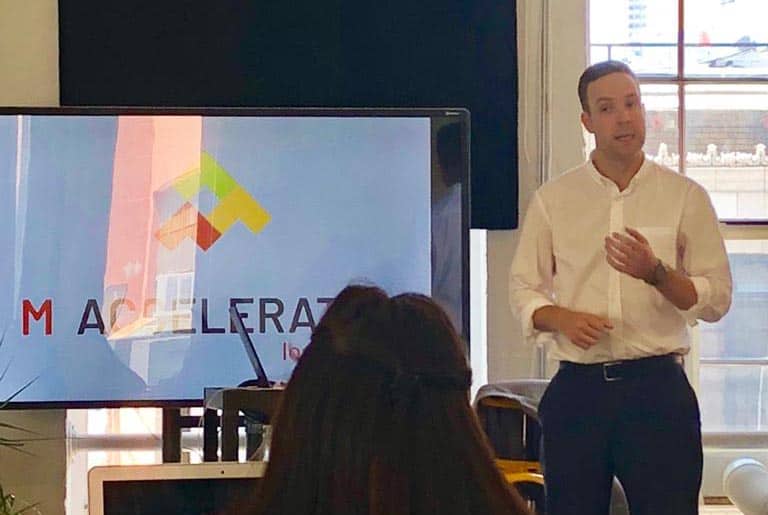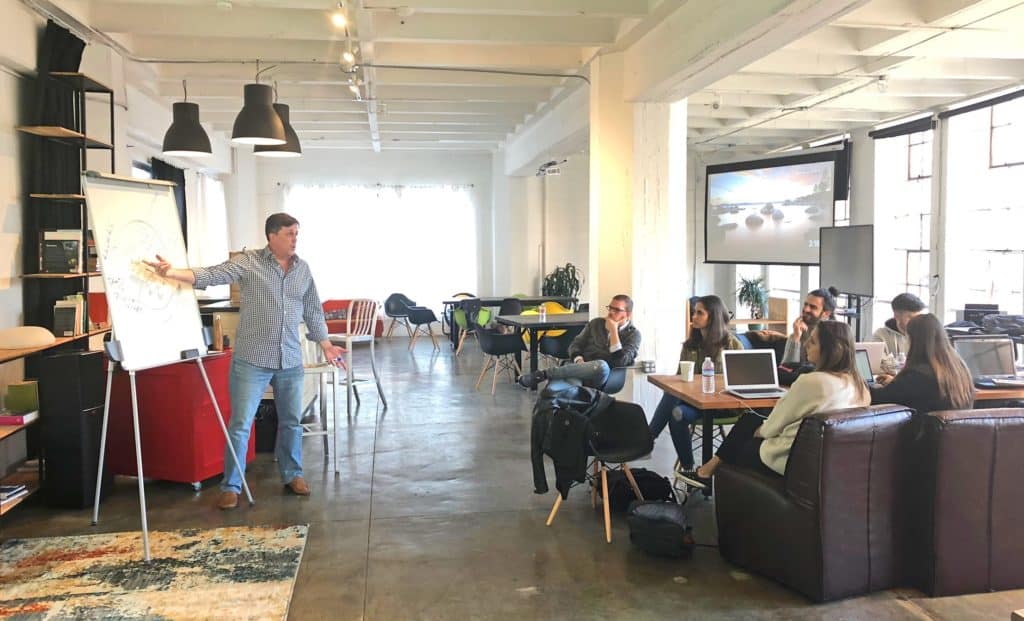
We are now a few months into this COVID-19 global pandemic and a month into a nation-wide lockdown with no sight of a return to normalcy anytime soon. The developments that are soon to come will be crucial in determining how our American health system and the economy will fare. With so much uncertainty, it can be quite a challenge for people to navigate their most important affairs.
Startup founders are one group of people that especially face the trial of navigating a COVID-19 world. Beyond dealing with the everyday challenges of running a business operation, these cash strapped ventures have new problems to tackle. One of the more glaring of these troubles is the fundraising scene.
A dive into how VCs and other funding institutions have responded shows that everything is, for the most part, business as usual. Of course, the mediums for how startups and funding institutions communicate have mostly moved online but deals continue to flow. We will share some insights on things founders should keep in mind as they look to meet their funding needs as well as some excerpts from two Venture Capitalists from our network.
Investment Opportunities Exist for the Determined
Finding investment for your company remains a numbers game for the most part. Just be sure to be persistent and believe in yourself as a founder. Acquiring investment has always been an endeavor and this is simply a part of the process. Opportunities are not going anywhere and those that are prepared to put in the work will surely find success.
Understand Where the Money Is
While VC funds remain fully operational, where those funds are going to has been shifting. Early-stage startups are the most vulnerable right now as venture capital firms are now adding tougher criteria in their funding determination. Criteria such as whether a startup is able to thrive in a lockdown created by things such as COVID-19.
One big opportunity that founders can look into is getting funding through accredited investors via regulation D. Regulation D 506(C) allows for open marketing to accredited investors, one of America’s largest investment pools. Traction for accredited investment has been growing ever since and has been a great resource for companies looking for funding.
Angel investment continues to be a great source of funding for early-stage firms. These types of firms and organizations can be the most helpful as they have less aggressive proclivities. While VC firm term sheets might leverage the sudden need for cash, many angel investment firms will give founders pre-COVID terms. This funding source will for sure be an important channel for startups for the duration of the pandemic.
Determine Your Burn Rate
It is supremely important that you have a good idea of your cash resources and what your burn rate is. COVID or no COVID, that is something every founder should be keeping track of. Make sure to look at those figures as frequently as once a week. It is important to be vigilant so that there are no sudden surprises. This will also be very helpful when it is time to reach out to your current and tentative investors for your funding needs.
Keep Your investors in the loop
Another incredibly important thing to be doing is making sure to keep frequent contact with your investors. Setting up semi-frequent meetings with investors shows diligence and goes a long way in your relationship with them. Investors can be busy but will often make time to know how things are going and can be valuable sources of knowledge as you develop your business.
Look for Funding Before You Need It
This might seem a bit unconventional but this something a lot of founders don’t realize in their haste. This is somewhat tied to making sure to understand what your finances look like and keeping investors in the loop because if you are able to do both of these, you will be able to prepare your funding ask much more effectively. It is easier to acquire funding when you have shown preparation and not in a bind than in a last-minute scramble to cover your books. Bootstrapping is quintessentially startup but your financial options and potential will often reflect your ability to proactively find funding.
Fortitude in the face of adversity
Every founder knows what a massive undertaking it is to run their businesses. Founders are challenged in so many ways every day. Adversity comes with the territory and founders have to be prepared for anything. Founders can choose to accept the difficulties of this global pandemic as yet another obstacle to overcome. Whether this may mean pivoting or re-allocating resources to weather the stagnation, startups must find ways to endure. It will be no small feat but great things are asked of the intrepid!
Now is definitely a good time to bet on yourself and your ideas. Entrepreneurs like Mark Cuban have described this COVID-19 situation as “the ultimate reset” and advise that if an individual has “a vision for their role in America 2.0” they should “test it now and get feedback”. New niches and markets are developing rapidly in the wake of the pandemic.

What are venture capitalists and fundraising specialists saying about the state of funding and startup operations during COVID-19? We got some input from venture capitalists Scott Matthews, director of Investment Thinking and Senior Associate at Sutter Securities Group, and Noble Drakoln, managing partner of Drakoln Capital Partners.
What does the funding landscape look like?
Noble A Drakoln: Accredited investors are really looking to get away from the markets and try to find their outlier opportunities during these dark ages. Family offices and larger LPs, on the other hand, are holding. So you have both the household and the institutions that are operating in two different impetuses. So as a founder, you have to pivot to where the money is.
There are 9 trillion dollars sitting in Individual Retirement Accounts and since we’re dealing with individual accredited investors, the numbers have always played the same. It’s spiked a little bit during this period because people are more accessible but it’s essentially the same. Nothing really changes in how it functions but because of COVID-19, our team is a lot more successful at reaching direct investors but the numbers remain the same. If you have a good investor relations and business development team, you’re going to do super well.
Scott Mathews: From a Private Equity and Investment Banking standpoint, what I am seeing is a lot of high net-worth individuals, accredited investors, and even funds are shifting. They’re shifting their capital allocation strategy away from group investments and more towards yield. So that is becoming a very popular asset class, anything with a preferred equity instrument and some sort of kicker on the backend or dividend payment that can be cumulative over time. That might be a strategy that founders need to shift towards, giving up a little bit of valuation to secure a safety net towards closing the round faster.
How should founders approach funding?
Noble A Drakoln: I think that a lot of founders, early on, get happy when they get some funding and then they stop looking for funding. That’s one of the worst things they can do. The reality is that you are selling your business and you are selling your widget, and it has to be done concurrently. You have to run and tie your shoes in this particular marathon and if you don’t do both simultaneously, you find yourself really left holding the bag.
If you stop raising money at some point, then how do you weather black swan events. Too many founders don’t like rising capital and get excited because they got capital. And then they stop doing the fundamental thing that got them to where they are. Fundamentally startups have to be in a consistent drive to raise capital.
Scott Matthews: I have always subscribed to the notion that you raise as much capital as you can while you can. Right now is going to be a pivotal time for a lot of these young founders and early-stage startups that don’t have as secure a balance sheet to really close on capital quickly. So they have to be a little more lenient in the market right now.
If you landed a lead, say, six weeks ago, that valuation is pretty much set for the most part. Which can honestly be a death kiss in itself. If the market views the valuation is too high, their round might be over. If I am in the shoes of the founder, I am coming in saying I am open to the valuation as long as it makes sense. I’m putting the onus on the investor to set the terms and the valuation. If something is egregious, my advice is to push back. Make them lay out their logic of what they’re seeing and why. It’s getting to the point now where a lot of accredited investors and funds are starting to get much more aggressive in terms of lowering valuations and rounds.

Should founders think about pivoting?
Scott Mathews: It really depends on how strong your balance sheet is in these trying times and what your monthly burn rate looks like. If you got enough cash on your balance sheet to really sustain the next six to twelve months and you prove enough product-market fit currently, the answer is probably not. On the other hand, if you’re looking for other key performance indicators that drive your business where you start to see your churn rate really spike and you’re burning through cash pretty quickly, that should spark a couple of questions: is my business or product really durable in market downturns? Is it really an essential business that my users really need to solve a problem? If the answer is no, you should definitely start considering the landscape that you are at and start to pivot your business model into what makes sense for you. What’s important is keeping a pulse on your cash flow statement and keeping a very tight eye on your cash position, as well as a lot of your user metrics.
Noble A Drakoln: Right now, we’re working with 8 different startups. Each one of them has had to do a slightly different pivot to weather the storm. Balance sheets are important, but what is key is to be willing to change your course enough so that you can catch where the current wave is instead of following the old business model. No matter what your key performance indicators are, you have to realize by now that nothing is normal. And so the beauty of the startup pivot is the ability to take exactly what you have and move to where the opportunities are. For the moment be nimble enough to shift slightly.
What are other things founders should consider as they maneuver their company in these times?
Scott Matthews: A great practice to follow no matter what the current economic environment looks like, is to lean on resources at your disposal that are not monetary. do you report to the directors or any advisers that you have better close your business, and people nowadays have nothing but time on their hands, you stuck inside [Inaudible] those mentors and advisers import to directors call weekly meetings, call daily meetings, because they are gonna be your best resources from a non-monetary standpoint to help you to get through this, and they can even be something as simple as having a discussion as do we pivot away from what we are doing now and this a new opportunity that we are gonna find.
Noble A Drakoln: For funding, you are actively creating your luck. You’re just trying to find your guy. Just cause someone says no now doesn’t mean no forever. That person just may not be your person, the reality is you have more than enough time at-bat. By talking to people who express their initial interest, you create your own luck. 99% perspiration 1% inspiration, that’s luck.

Whether things settle quickly or not, it is clear that the way that the world works and many processes(such as funding) will most likely change forever. Startups are going to have to dig deep, utilize their resources, and adapt quickly to be able to thrive in these changing landscapes. It will be difficult but those prepared to put in the necessary amount will surely experience growth.
It’s no easy thing to navigate important facets to startups such as fundraising which is why M Accelerator is committed to being a resource for our community. Extensive experience in the space lends itself in our effort to support the budding companies in our network.
M Accelerator is a startup accelerator/incubator based in Los Angeles where we offer live and online startup entrepreneurship programs that will give you the tools and resources to develop your entrepreneurial skills under the instruction of highly experienced mentors and advisors. The program is an excellent course of option for people looking to increase their business acumen without committing to an MBA length program and paying an MBA level price.
Throughout the program, you will gain incredible, transformative experiences, skills, and knowledge that will hone your passion for intrapreneurship. At the program’s core is a regimen designed to instill solid business management skills and to teach innovative design tools.
In addition, you will learn how to effectively communicate your ideas and move them forward. The program is filled with effective workshops in each weekly ‘sprint’, covering a variety of topics ranging from business communication to digital marketing, resource management, and much more. All while in the company of a cohort of like-minded individuals that will become a valuable part of your personal and professional network.



